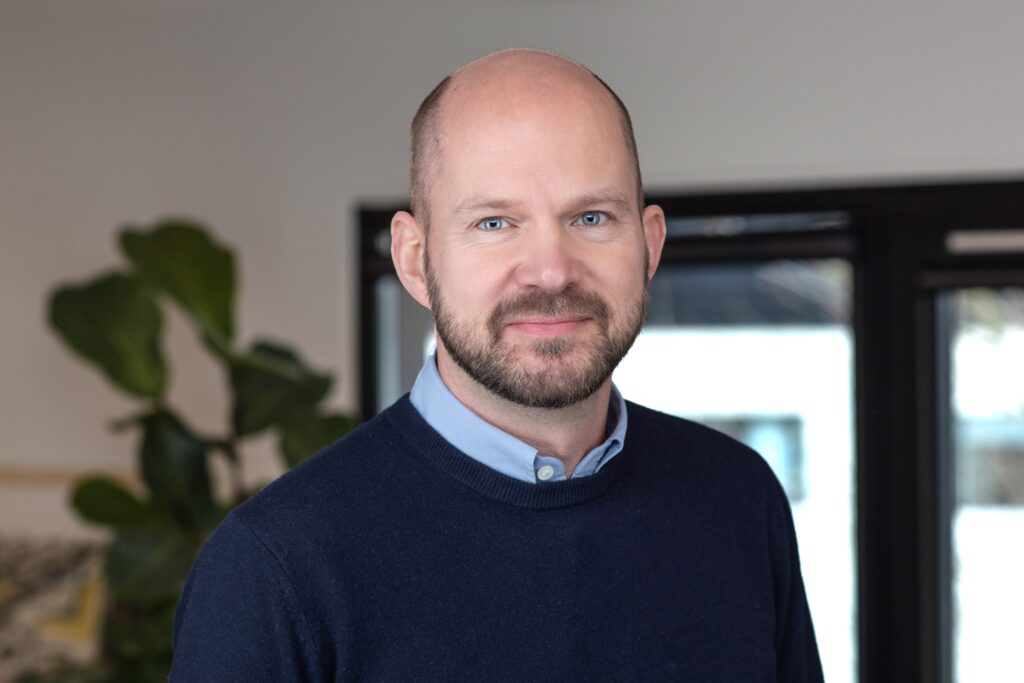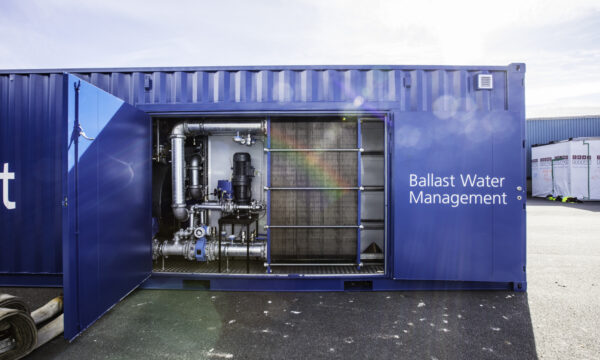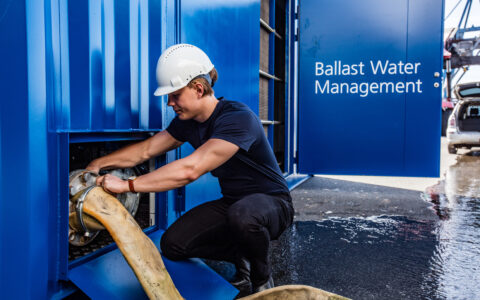02.01.2025 | Case story
Marine biodiversity is under threat. Nefco, the Nordic Green Bank, helped finance Bawat’s expansion of its ballast water treatment system.
Ships use ballast water to maintain stability. Unfortunately, taking on ballast water in one location and discharging it in another can introduce invasive species, including plants, animals, viruses and bacteria. This causes US$ 423 billion in damages annually, according to the UN’s 2023 Invasive Alien Species report.
“This is the biggest financial problem no one knows about,” says Marcus Hummer, CEO of Bawat. “You can see if a ship is smoking or leaking oil but you can’t see if it is discharging dangerous water.”

The usage and treatment of ballast water is governed by the International Maritime Organization’s (IMO) Ballast Water Management Convention, which came into full effect in September 2024. The United States is not a signatory but has issued similar rules. These regulations require ships to manage ballast water so as not to release harmful organisms. Bawat has developed a ballast water treatment system that is certified for both IMO and US standards.
Based in Hørsholm, Denmark, Bawat A/S was founded in 2011. It created its ballast water management system for use onboard ships but later realised ports and other land-based maritime infrastructure also need such systems. Bawat developed a containerised solution and approached Nefco for funding to launch Bawat BaaS – Ballast as a Service.
Surplus heat kills harmful organisms
“We were interested in working with Bawat because they had a great business idea which positively affected the marine ecosystem,” says Vivi Avikainen, Investment Manager at Nefco. “You see many innovations to mitigate climate change, but it is rarer to see a proven process which helps to keep intact local biodiversity.”
Hummer explains that there are several ways to kill unwanted organisms in ballast water. One uses filters and chlorination, while another uses filters and UV radiation. Bawat’s system only uses heat.
“This is essentially pasteurisation, just like the food and beverage industries use for milk, beer and juice,” Hummer explains. “Heat treatment is very efficient; on ships we even use surplus heat from the engines to treat ballast water.”
The system can be installed on new ships or retrofitted to old ones, as well as used on shore.
“There are many needs for a shore-based ballast water treatment solution,” Hummer continues. “A ship may not have an on-board system or have a malfunctioning one, so ports need a contingency plan. Another example is scrapyards that have to deal with ballast water on the ships they recycle.”


Nefco funding helped launch the new services
To expand beyond ship-based systems to modular and service solutions, Bawat raised equity and debt capital. It issued new shares on the Nasdaq First North stock market in Sweden and signed a loan agreement with Nefco. The capital is used to expand their sales network and capacity for support and delivery. Specific investments were made for the BaaS rollout.
A vessel in Bremen used Bawat’s mobile BaaS when it could not treat its ballast water in compliance with the IMO discharge rules. This saved the company time and money and protected the environment from potentially dangerous invasive species. The port of Hamburg has also approved Bawat BaaS and has a permanent unit in place.
Nefco was a key element in rolling out BaaS. Dialogue with the Nefco team has been smooth and transparent. It has been a good experience for us.
Marcus Hummer, CEO of Bawat
Interest from other industries
One challenge Bawat faces is the uneven enforcement of the new regulations. So far, it has seen the greatest demand from Northern and Western Europe, but it is already considering further expansion, both geographically and in new maritime industries.
“Our solution can potentially be used in other applications,” concludes Hummer. “When a ship’s hull is cleaned from biofouling that water should be treated. Companies in the fishing industry have also contacted us. The fact that we have been approved for both IMO and US Coast Guard standards is attractive for other industries.”
Text: David J. Cord
Wish to know more about our financing options?
Check out Nefco’s loans and equity investments for scaling up Nordic green solutions on global markets. View also our other financing options for operational growth or financial support for new market entry.
Contact us
